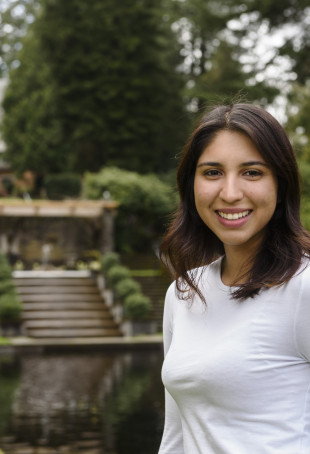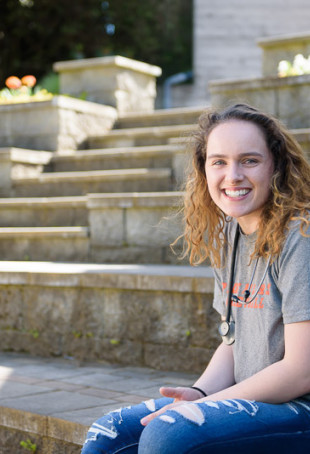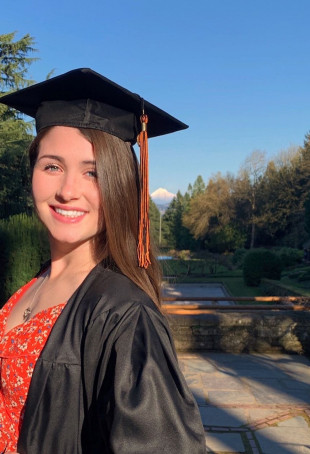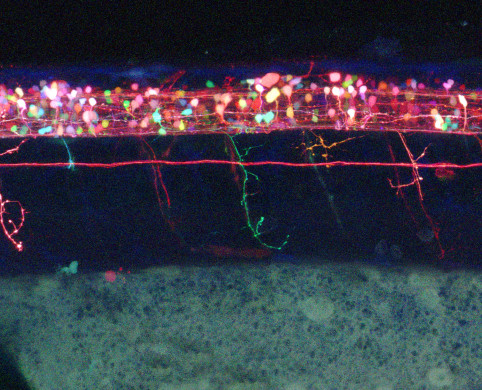- <a href="/live/image/gid/523/width/650/86491_Neuroscience_main_image.jpg" class="lw_preview_image lw_disable_preview" tabindex="-1"><picture class="lw_image lw_image86491"> <source type="image/jpeg" media="(max-width: 500px)" srcset="/live/image/gid/523/width/500/height/479/crop/1/86491_Neuroscience_main_image.rev.1607649229.jpg 1x"/> <source type="image/jpeg" media="(min-width: 501px)" srcset="/live/image/gid/523/width/720/height/690/crop/1/86491_Neuroscience_main_image.rev.1607649229.jpg 1x"/> <img src="/live/image/gid/523/width/720/height/690/crop/1/86491_Neuroscience_main_image.rev.1607649229.jpg" alt="Students have the opportunity to explore the fast-growing field of neuroscience in a structured, challenging, and satisfying way." width="720" height="690" data-max-w="694" data-max-h="665" loading="lazy"/> </picture> </a><div class="hero-split_image_caption collapsable-caption"> Students have the opportunity to explore the fast-growing field of neuroscience in a structured, challenging, and satisfying way.</div>
Neuroscience
We want our students to do neuroscience, not just read about it. Hands-on study is the best possible training for a career and the best way to become a scientifically literate citizen. You will learn tangible skills that apply across disciplines, all while benefiting from our proximity to Oregon Health & Science University and the diverse natural environments of the Pacific Northwest.
Why Choose a Minor in Neuroscience?
Our innovative and interdisciplinary program emphasizes original research and critical thinking. The neuroscience minor leverages the expertise of faculty members from seven distinct academic departments across the sciences and humanities. You will have the opportunity to explore the rapidly evolving field of neuroscience in a structured, challenging, and satisfying way. We provide an in-depth investigation of nervous-system function while allowing you to pursue a major in another discipline. We also offer robust opportunities for experiential learning through fieldwork, internships, and paid student-faculty research. Our students graduate with excellent career preparation skills, knowing how to write grants, read scientific literature critically, reason quantitatively, and work in teams.
What You’ll Study
Our students are required to take coursework that trains them to consider scientific problems from the perspective of disciplines outside their major. Neuroscience students are often deeply involved with faculty research that spans many subfields, including behavioral genetics, behavioral neuroscience, cognitive neuroscience, neurobiology, and neurochemistry, providing opportunities rarely available to undergraduates. We believe this active, interdisciplinary approach is the best preparation for your professional life outside Lewis & Clark.
Many Lewis & Clark students—unlike students at other schools—earn course credit toward their neuroscience minor while on an overseas program. In addition to general cultural programs that are open to all students, there are programs with a biochemistry, biology, or psychology focus.
Outside the classroom, many neuroscience students get involved in cutting-edge research, available through classes and the paid Rogers Summer Science Program. Many of our students take advantage of additional research opportunities at the nearby Oregon Health & Science University, doing summer research internships and even senior thesis projects. Students interested in careers in the health professions often complete clinically relevant volunteer and internship experiences at a variety of hospitals and clinics in the area. We provide extensive guidance to help students find and secure these opportunities.
Complement Your Education With One of These Majors
The most popular majors for our neuroscience minors are biology, biochemistry and molecular biology, and psychology.
What Students Are Saying About Lewis & Clark
- Katya Schwieterman BA ’24
The human brain has evolved into an incredibly complex system with fantastic quirks, which neuroscience seeks to understand. It’s a new field, a captivating one, and studying it brings me joy along with developing new skills.
Biochemistry and Molecular Biology | Neuroscience | Paonia, ColoradoMore about Katya - Saheli Singh BA ’22
Intro to Psychology with Jolina Ruckert was my favorite class. This class expanded my perspective of and interest in the field of neuroscience. The brain is such a complex and interesting part of the human body that fascinates me. This class has allowed me to view aspects of the world in a different manner.
Biology | Pomona, CaliforniaMore about Saheli - Serena Saba BA ’19
I am a psychology major and neuroscience minor on the pre-health track; L&C is one of the only schools that offers a neuroscience minor.
Psychology | Dana Point, CaliforniaMore about Serena
What Can You Do With a Minor in Neuroscience?
Our alumni use their minor in neuroscience in a wide variety of careers—including research, medicine, public health, teaching, and law—and many attend graduate school or doctoral programs in the health professions. They work in academia, in industry, with nonprofits, and for local, state, and federal governments. Many of them apply the skills they have acquired in problem solving, critical thinking, writing, and speaking to fields other than neuroscience.
Dedicated Faculty
Our expert professors are your expert mentors. You will learn directly from faculty (no graduate assistants here!) that are nationally recognized in their fields of study and who love to work with and learn from their students. Your professors will inspire you to be a thoughtful and passionate participant in a diverse world. Your small classes will support you as you explore new ideas, find your voice, and speak your truth.
Neuroscience faculty rely on their students to be collaborative researchers in the lab, providing an opportunity that’s rarely available to undergraduates at other schools. Students are frequent coauthors on peer-reviewed faculty publications and professional presentations.
- 29+33
Lewis & Clark offers 29 majors and 33 minors.
- 19
Average class size for undergraduate students
- 96%
Within six months of graduation, 96% of the Lewis & Clark Classes of 2018–2022 were already changing the world through employment (76%), continuing studies (19%), and service work (1%), like the Peace Corps.
- 10%
of our undergraduate students are from outside the U.S.
- 47
U.S. states represented in our undergraduate student body
Invest in Yourself
A private liberal arts education is often more affordable than you think. Last year, Lewis & Clark distributed over $74 million in assistance from institutional, federal, state, and private sources. Additionally, we’re so confident that our first-year students will graduate in four years with their bachelor of arts degree that if you don’t, we’ll cover the extra semester of tuition.
Find Your People
Students can join a variety of student-run organizations that relate to their neuroscience minor, like Math Club, Physics Club, and Pre-Health Club. Don’t see what you’re looking for on the club list? Start something new and build your own community of peers!
- Alexa Hanson BA ’20
The brilliant and supportive professors at L&C prepared me for the rigor of graduate school. The heavy workload is still tough to balance, but I’m confident that my academic experiences at L&C prepared me to not only manage it, but excel academically as well.
Psychology | Neuroscience | Alameda, CAMore about Alexa
Featured News
Understanding the Neurological Mechanisms Behind Parkinson’s Disease
Associate Professor of Biology Tamily Weissman’s research, supported by the National Institutes of Health (NIH), could shed light on new treatment pathways for Parkinson’s and other neurological disorders.





